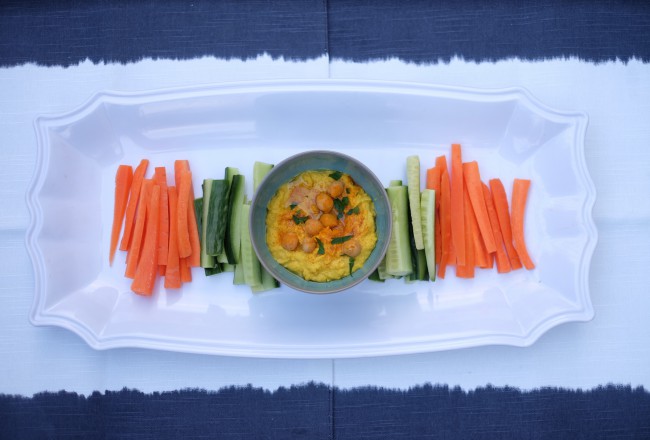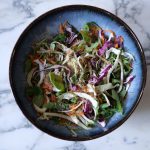Why is “plant-based diet” such a hot term in nutrition at the moment? What does it mean? Are there grounds to avoid meat and animal products for health reasons? What do I need to watch out for?
Quick proviso: On the ethical and environmental aspects of this issue on which vegetarianism and veganism are primarily based, each to their own. We are talking here purely about nutrition and health.
What is a plant-based diet?
A plant-based diet (often called a whole foods plant-based diet “WFPB”) is a diet based on fruits, vegetables, whole grains, legumes, nuts and seeds. Any plant-based diet limits or excludes highly refined foods like bleached flour, refined sugar, and vegetable oils. This way of eating is based around unprocessed or minimally processed veggies, fruit, whole grains, beans, legumes, nuts, and seeds. The strictest versions propose that the diet should be predominantly or wholly raw.
A plant-based diet may be vegetarian or vegan. Vegetarians exclude all meat (including fish) and by-products of animal slaughter; Vegans additionally exclude dairy products, eggs and any animal-derived foods.
Health grounds on which to avoid meat, fish and meat derived products
In general, we cannot see any strictly health or nutrition reasons on which removing ALL meat and animal sources of protein from a healthy diet can be justified, although we acknowledge that in some cases there may be a specific medical condition that requires this. Of course, there are many people who feel better giving up meat and dairy products and if this is the case for you then listen to your body and go for it (but make careful choices to ensure you don’t miss out on essential nutrients –see below). We cannot find any evidence-based reasons to go meat/dairy free in terms of general health. There are multiple studies, books and resources about this available, but it is impossible for us as lawyers not to notice that the research is (at least potentially if not admittedly) cherry-picked or biased on ethical or environmental grounds. There are as many credible scientists criticising the findings of The China Study as there are supporting it. If the meat and meat products you choose are hormone-free, unprocessed and sourced from vegetarian fed animals and cage-free birds or wild fish, there are no health reasons to avoid eating it, assuming you cook it correctly, use proper hygiene when handling raw meat and do not eat too much of it.
There are proven scientific studies linking meat eating to cancer. These are the following:
- Burnt or over-charred meat is potentially carcinogenic (we will do a whole post on this related to BBQ’s in May); and
- The link between over-processed meats (sausages, ham, bacon, salami, corned beef, jerky, meat-based sauces etc.) and certain gastrointestinal cancers (colo-rectal).
Avoiding direct flame-cooking of meat, avoiding burnt meat and avoiding or at least minimising processed meats will negate the proven meat to cancer links: Animal protein per se does not cause any harm, if it is not eaten to excess. Claims that the human body is not designed to eat animals are completely false medically. Our bodies make full use of the nutrients found in meat. The fact that there are studies showing that vegans and vegetarians live longer and have a lower risk of some serious diseases has not been isolated from user-bias (i.e. that vegans and vegetarians are usually more health conscious generally, and are more likely to exercise, meditate, avoid smoking and drink less alcohol than the average meat eater). Health conscious meat eaters live just as healthily and just as long as vegans or vegetarians.
Will I lose weight on a plant-based diet?
There are many people who have found that switching to a plant based diet helped them lose weight. Our answer for that is that plant based foods tend to be lower in calories and rich in fibre so they help to keep you satiated. It is very difficult to over-eat plant based foods. Of course you will lose weight removing burgers from your diet if these are currently a staple for you. The link is not with avoiding animal products altogether but with consciously going on a diet or health kick. You can find proponents for ANY diet on that basis (and frankly this is the main reason why every diet has its supporters: they did lose weight on it, they went on A diet and gave up something or controlled their portion size). Any refocus on your health is a good thing but be careful not to misunderstand how weight loss occurs. It occurs from consuming less calories than your body requires to function. You can lose weight and feel great on a diet that includes meat, eggs and dairy too.
Protein and other nutrients in a plant-based diet
Although we at TMA are meat eaters, we fully support anyone who is not. Claims of some paleo/high protein protagonists that it is impossible to obtain all necessary nutrients without animal foods are as unscientific as the vegan argument against all meat and animal products. However, there are a few things to watch out for if you are avoiding meat and dairy:
- Vegans tend to have significantly higher incidents of certain nutrient deficiencies, including vitamin B12, vitamin D, calcium, iron, zinc and omega 3 fatty acids, so if you are a vegan give your diet lots of thought and focus on including plenty of sources of these nutrients in your diet.
- As to protein, animal sources of protein tend to be what is known as “complete” – they contain all nine of the essential amino acids needed to build new proteins. Proteins from fruits, vegetables, grains and nuts tend to be incomplete proteins (with the exception of quinoa, buckwheat, spirulina, hemp and chia seeds) – they lack one or more of the amino acids that the body cannot make from scratch or create by modifying another amino acid. In order to get all the required amino acids in a meat, fish, egg and dairy free diet, you need to make sure you eat a really good variety of other protein containing foods each day. N.B. There are scientific studies showing dangers of both too little AND too much protein. Back to our favourite words as usual: balance and moderation!
- Plant-based diets are against the idea of balance and moderation since they cut out many food groups with very little scientific claims that back the exclusions on health grounds. Many such diets allow limitless fruit, for example. Not the best idea. Many vegan desserts are overfilled with sugar (albeit naturally sourced e.g. dates or coconut blossom nectar), and you know what we think about that. (Read more here)
Our conclusion and my diet
A whole foods plant based diet would be superior to a standard, average (a.k.a rubbish!) western diet, but so would a paleo, Mediterranean, Atkins or any other diet – any diet that focuses on minimising processed foods would fit that description. The health claims made by vegans primarily come from the reduction of added sugars, refined grains, trans fats, processed meats, high omega 6 vegetable oils and margarines and the inclusion of so many plant foods which have so many health-promoting properties. Our view is that a diet (even a plant-based diet) that includes some carefully chosen animal foods (especially omega-3 rich fish and some dairy products) is healthier than a diet containing none. There is no nutritional basis on which to remove eggs and some (humanely reared organic grass-fed preferably) animal products and fish that are sourced responsibly, cooked correctly and not eaten to excess. A diet too high in animal products is NOT one we would recommend. What we do love about the WFPB diet movement are the following, which are unequivocal: eat more vegetables in both quantity and variety (they should make up at least half of your plate at both lunch and dinner), and limit or remove any packaged or processed products including meat products, refined sugars, refined grains and refined oils. Further, many diets are over-reliant on animal protein and it is responsible to look toward plant sources.
I could never completely give up meat, fish, dairy or eggs. I have many meat-free meals, though more often than not they contain some animal sourced protein like eggs or cheese (I put cheese in almost everything, just a small bit, but even in vegan favourites like lentil soup when I stop to think about it). This is not a vegan blog, there are plenty of brilliant ones out there if you are vegan! However, I am a lover of all vegetables and eat a lot of them. Thinking of meat and animal protein (and wholegrains for that matter) as more of a garnish to vegetable-based dishes is more my thing than either a paleo, Atkins or WFPB diet. I haven’t analysed the amounts exactly but my diet probably is 60-80% a WFPB diet. I have experimented a few times with various tweaks, partially for fun (I am weird) and partially to have the confidence to be able to advise you. I do gain weight if I eat too much meat/animal protein but I also gain in strength and am able to exercise harder which overall would result in a more sculpted body, albeit a slightly larger size. When I followed a WFPB diet exclusively, I lasted 2 days and then did enough research (discussed above) to decide it made no sense. It won’t happen again: I don’t have time to spend two days dreaming of free-range eggs, wild salmon and corn-fed chicken for no nutritional reason. Over many years of obsessively researching nutrition with a typically legal mind (able to process large amounts of information and extract the relevant and reliable) I have picked up my own “diet” which takes the best bits from every other one I have read about and discards the noise and bias. It has worked for me – I’m still bikini happy after three kids and feel healthier than ever. Do what works for you. I’m sharing what works for me in case it helps you. I’m slightly nervous that this post is going to unleash a whole load of criticism from the vegan brigade. People are passionate about politics and ethics! Q.E.D. This ain’t nutrition or science. Please can any critics bear in mind that I do agree with most (if not all) of the ethical and environmental arguments against current meat consumption norms. I buy only organic meat, eat very little of it and the concept of caged chickens brings me out in hives. This post is looking solely at nutritional fact and science backed proof, and on that basis alone, our opinion is that a pure WFPB diet with zero meat, fish and animal derivatives cannot be claimed to be nutritionally superior than one with some ethically sourced, organic, unprocessed, correctly handled and gently cooked meat and fish. That being said: each to their own! I LOVE vegetables and love how inventive my vegetarian friends are with plants. I am constantly inspired and as mentioned above, my diet is largely WFPB. I would rather eat no meat than bad meat, on both nutritional and ethical grounds.
The recipe here is for a warm tofu dish that is super yummy. Soy products are a great source of plant-based protein. N.B. Use organic soy products because most commercial soy beans are genetically engineered.

TOFU AND MANGO SALAD
Ingredients:
- 200g firm tofu, cubed
- 15g fresh ginger, grated
- 2 cloves garlic, grated
- 2 tbs tamari (gluten free soy sauce)
- 1 tbs apple cider vinegar
- 2 tbs sesame oil
- 1 bunch spring onions, sliced diagonally
- 50g cashew nuts
- 1 small or ½ large mango, cubed
- 150g fresh spinach (approx. ½ to one bag)
- 2 tbs water
- Juice of ¼ lemon or lime
- 1 tbs sesame seeds, to serve
Method:
Mix together the ginger, lime, garlic, tamari and vinegar in a small bowl. Add the tofu to the bowl and set aside to marinate for 15 minutes. Lift the tofu from the bowl and and reserve the marinade. Heat 1 tablespoon of oil in a pan and lightly fry the tofu for around 3 minutes. Remove from pan and set to one side. Add the spring onions and cashews to the pan and fry until the onions start to soften.
Pile the spinach onto a serving dish and dress with 1 tablespoon of sesame oil. Scatter the mango, tofu, spring onions and cashews over the spinach. Heat the marinade in a pan with the water. Pour the mixture over the salad and scatter with sesame seeds. Serve immediately before the spinach wilts. Enjoy!
Photo credits: platter and bowl both part of the Halo range by Denby







